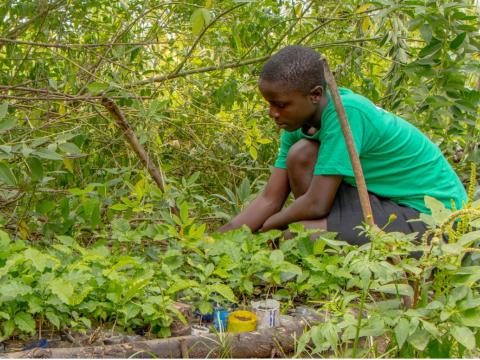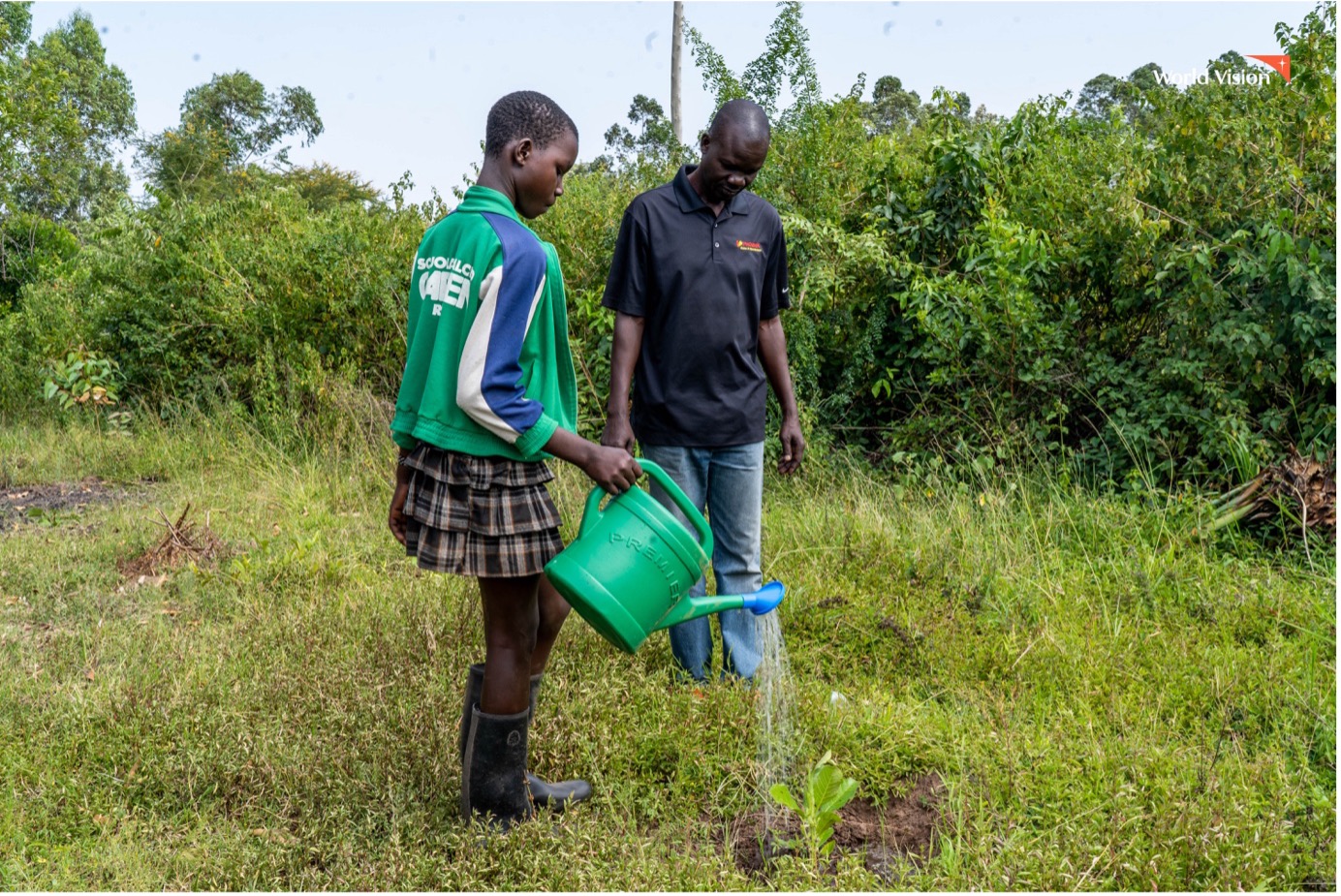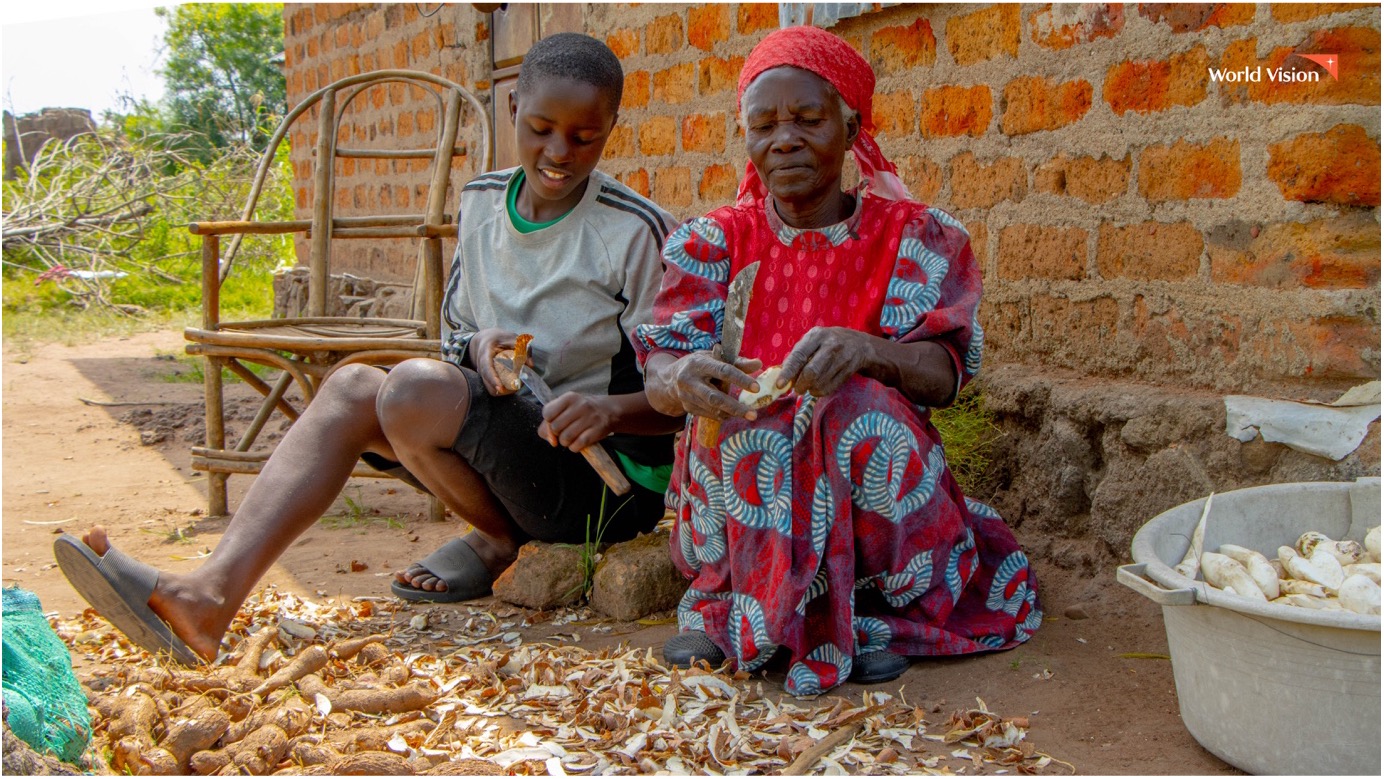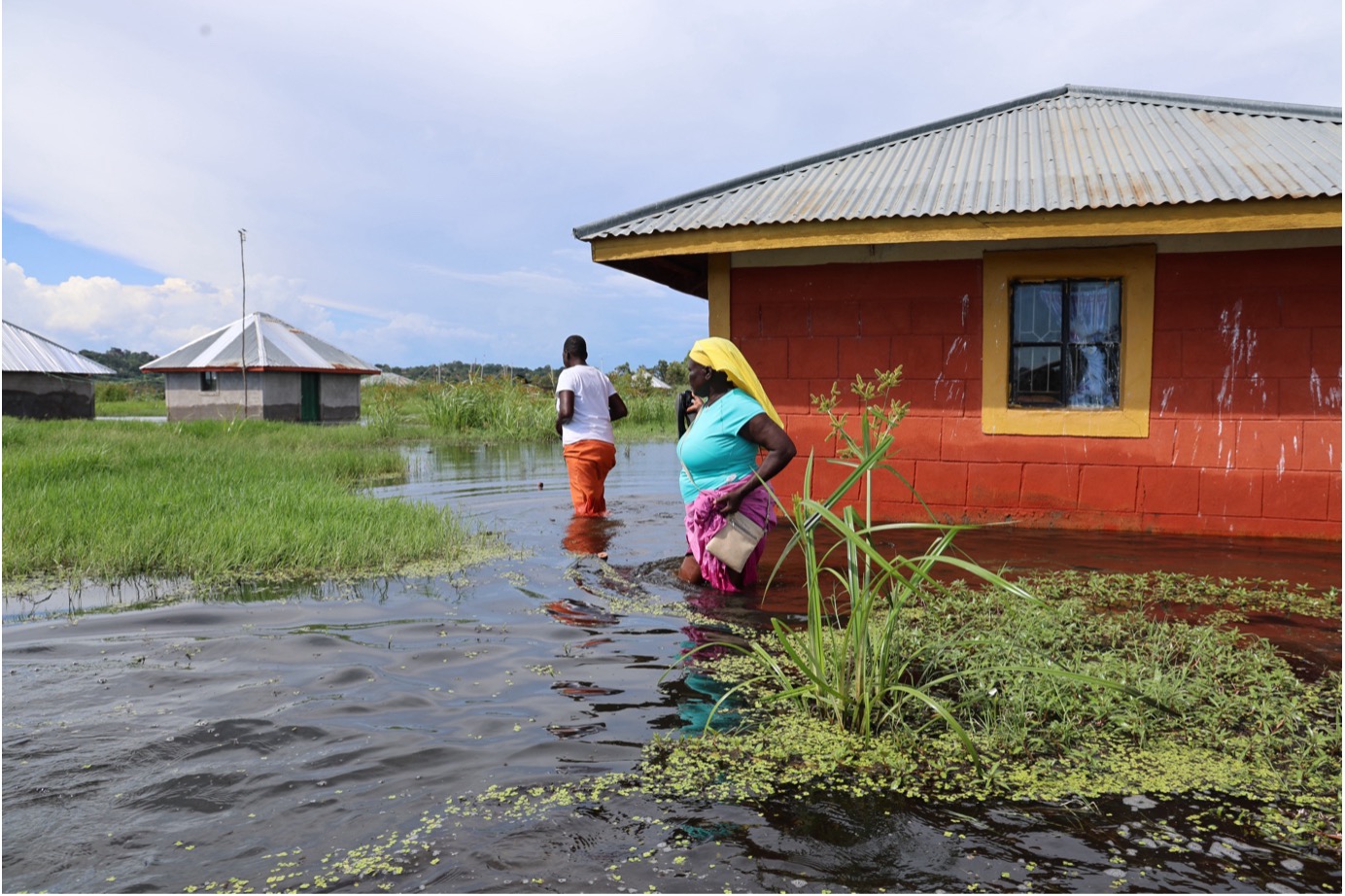Seeds of Change: Two 14-Year-Old Girls Leading a Green Revolution in Nyatike

In Nyatike, Migori County, Kenya, two 14-year-old girls, Elizabeth and Kate, are emerging as young restoration champions, determined to bring hope and positive change to their community.
Their journey began when World Vision Kenya introduced the Restoring Land & Improving Livelihoods in Migori (EOM) project, funded by the Netherlands Government. Sagenya Primary School, where Elizabeth and Kate study, was one of the targeted institutions.
Through collaboration with the school management, World Vision identified and trained 16 environment club patrons from 8 schools in tree planting and regeneration practices. The project also supported each school with a watering can to enable them to water their tree seedlings.
A vital component of the project was introducing these patrons to Farmer-Managed Natural Regeneration (FMNR), a practice that promotes the growth of indigenous trees from existing stumps or naturally occurring seeds.
Mr. Kennedy Ariri, a teacher at Sagenya Primary School, was among those who benefited from the training. "Beyond FMNR, I learned about agroforestry practices, which involve integrating valuable tree species into degraded forests without removing the existing vegetation," he says.
The training also covered fruit tree farming, soil and water conservation, climate-smart agricultural technologies, and tree-based value chain projects like beekeeping. After the training, the patrons passed this valuable knowledge on to the school children, inspiring Elizabeth and Kate to take action in their homes.
EOM Project supported Elizabeth with a watering can. With her family's support, Elizabeth started a small tree nursery with over 150 seedlings and established a kitchen garden where she grows vegetables for her family. She sold about 100 tree seedlings during the rainy season at Ksh. 15 each (0.12 USD), using the profits to buy herself a school uniform.
Motivated by her success, she planted the remaining 50 seedlings on their farm. "I want to become a sign language teacher," Elizabeth shares. "The trees I'm planting now will help me pay my school fees beyond elementary school."

Kate, who lives with her grandmother, developed a keen interest in beekeeping, a skill she learned through the Environment Club at school. With her grandmother's support, she began nurturing both indigenous and fruit trees on their farmland, which has allowed her to venture into beekeeping.
"When I went home after the training, I asked my grandmother to buy me beehives," Kate explains. "Even though we had enough trees, my family had never considered beekeeping." Her grandmother, moved by Kate's passion, found the means to buy the hives.
Later, World Vision's EOM project provided Kate with two additional hives and assigned a lead farmer to coach her on beekeeping practices. The hives are now carefully placed under Cascabel thevetia trees, which have formed a bush at the entrance to their homestead.

Kate recently harvested 8 litres of honey from her three hives, each litre fetching Ksh. 600 (4.63 USD). She sold the honey, using the earnings to pay her school fees and help her grandmother with household essentials. Kate dreams of becoming a lawyer to advocate for environmental justice, a cause she believes is crucial for her community.
Mr. Ariri notes that Elizabeth and Kate have become role models, inspiring other students to apply what they have learned at home. "It's inspiring to see these young learners leading their communities in crop farming and beekeeping while conserving our ecosystem through regenerative practices," he says.
In Migori County, only a small percentage of land is suitable for farming, and even these fertile areas are fragile and prone to erosion due to poor agricultural practices. Nyatike, in particular, faces the dual challenges of unreliable rainfall and frequent floods, leading to reduced crop yields and widespread food insecurity.

Heavy downpours during the rainy season flood homes, wash away crops, and disrupt lives, plunging many households into a humanitarian crisis. These floods pose life-threatening risks for children, including the dangers of waterborne disease and being swept away by the water.
Through the efforts of young environmental champions like Elizabeth and Kate, there is hope that sustainable practices can secure a brighter future for the region. These young leaders and their peers are actively contributing to mitigating the devastating impacts of climate change that have long plagued Migori County.
By Felix PiliPili, Communications Specialist, World Vision Kenya